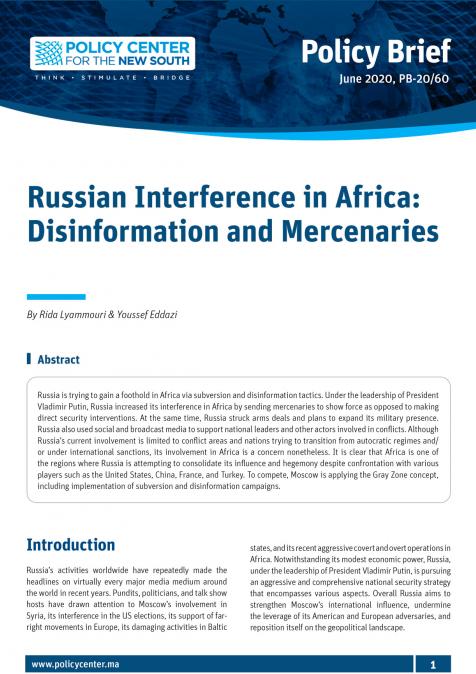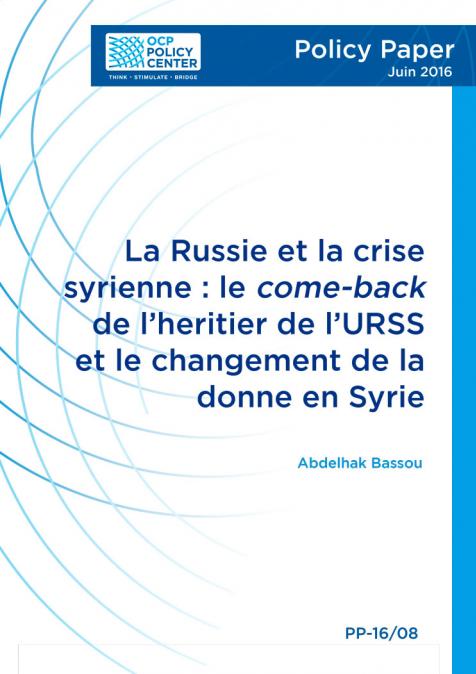Publications /
Policy Brief
Russia is trying to gain a foothold in Africa via subversion and disinformation tactics. Under the leadership of President Vladimir Putin, Russia increased its interference in Africa by sending mercenaries to show force as opposed to making direct security interventions. At the same time, Russia struck arms deals and plans to expand its military presence. Russia also used social and broadcast media to support national leaders and other actors involved in conflicts. Although Russia’s current involvement is limited to conflict areas and nations trying to transition from autocratic regimes and/ or under international sanctions, its involvement in Africa is a concern nonetheless. It is clear that Africa is one of the regions where Russia is attempting to consolidate its influence and hegemony despite confrontation with various players such as the United States, China, France, and Turkey. To compete, Moscow is applying the Gray Zone concept, including implementation of subversion and disinformation campaigns.









